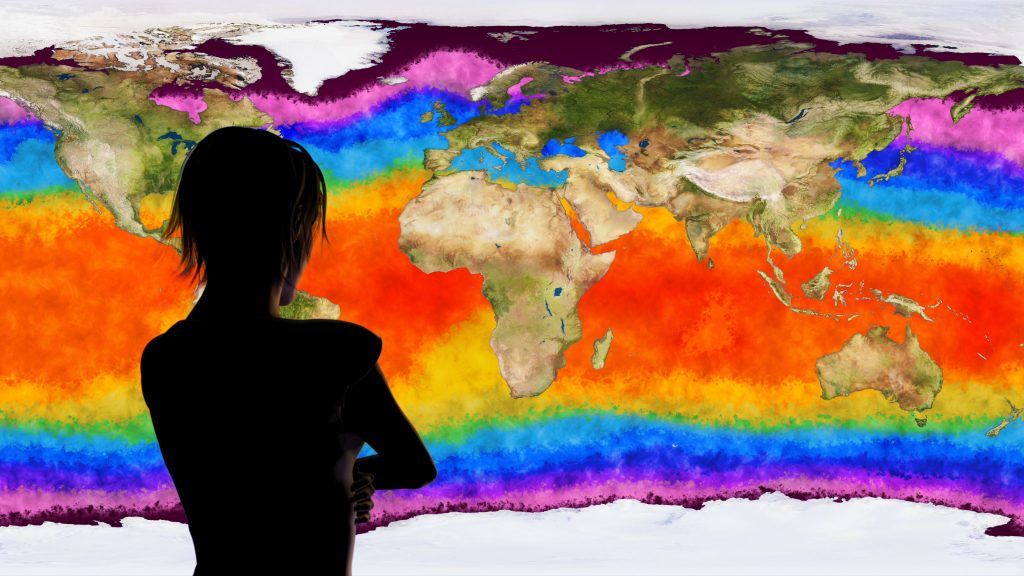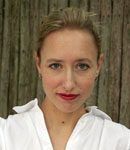Six of 2017’s best columns
By Elisabeth Eaves | December 21, 2017

Every year our columnists make sense of current events by drawing on their expertise. In 2017, they had a lot to make sense of. January kicked off with a new US president and his cabinet appointees, some of whom, like EPA chief Scott Pruitt and Energy Secretary Rick Perry, seemed bent on gutting their new departments.
Appointments like these, plus proposed cuts to federal science spending and a president who had once called climate change a hoax, led to serious alarm among scientists and other proponents of fact-based decision making. Public protest culminated in the March for Science on April 22nd, during which more than a million people in 600-plus cities around the world took to the streets.
In July at the United Nations, a majority of the world’s governments voted for the Treaty on the Prohibition of Nuclear Weapons, the world’s first-ever ban on nukes. But all the nuclear-armed states and most of their close allies voted against the new ban, and it was treated pretty much as a non-event by the public and press in the United States.
In the second half of the year, US public attention became riveted on weather and wildfires, as hurricanes ravaged the Houston area, Puerto Rico, and the US Virgin Island, and the country experienced the costliest fire season ever for the US Forest Service, which spent more than $2 billion to battle blazes that consumed millions of acres.
In the background, always, was Russia, with clear evidence emerging that it used social media to manipulate US voters in the 2016 presidential election.
In 2017, Moscow and Washington accused one another of violating the Intermediate-Range Nuclear Forces Treaty, an important tool in ending the last nuclear arms race, and embarked on plans to modernize and upgrade their respective nuclear arsenals.
Our columnists tackled all this and more, including topics less headline-grabbing but just as important, like the emergence, after many years in the making, of a US biodefense strategy. It was tough to choose just six top columns, but secret Russian nuclear labs seem like a good place to start.
A visit to Russia’s secret nuclear labs
by Siegfried S. Hecker
Today the United States and Russia may be entering a new arms race, but 25 years ago things were different. In 1992, the Soviet Union had just collapsed and the Cold War was newly over. This seismic shift in geopolitics meant that American and Russian nuclear scientists were suddenly allowed to talk. Siegfried S. Hecker, then the director of Los Alamos National Laboratory, was among the American scientists to participate in a remarkable period of scientific cooperation that began at that time. He visited the secret Russian nuclear city of Sarov, worked with his Russian colleagues to advance the science of nuclear fusion, and shared a camaraderie with his counterparts that comes through in his writing. Hecker penned three 2017 columns on his involvement in those US-Russia exchanges. They convey both the weirdness of working with the erstwhile enemy and the excitement the scientists felt over learning what the other side knew and advancing human knowledge. (Hecker’s second and third columns on this subject were When science brought Americans and Russians together and The US-Russian teamwork that kept nuclear weapons safe, co-authored with Paul C. White.)
One scientist’s to-do list for presumptive Energy Secretary Perry
By Jeff Terry
It wasn’t clear that Rick Perry knew what he was getting into when he took charge of the Energy Department. The former Texas governor had, after all, once tried to say in a political debate that he wanted to do away with the department, but forgot its name. No matter. Our columnist Jeff Terry penned a cheerful letter to Perry explaining what the Energy Department does—mostly manage nuclear weapons and clean up nuclear waste—and how to fix its various problems.
How scientists can fight for science without losing trust
By John Cook
Traditionally, scientists shied away from advocacy and activism. They are, after all, pretty busy just conducting science, and many believed adding their voices to public policy debates might undermine their work by making it seem politically motivated. In an era in which trusting the scientific method is itself a political position, though, attitudes are starting to change. In the run-up to the March for Science, our columnist John Cook discussed a study showing that when a scientist advocates for specific policies, it does not necessarily reduce his or her credibility.
The nuclear weapons ban treaty (not) in the news?
By Hugh Gusterson
One major American newspaper buried news of the first-ever ban on nuclear weapons, while another left out major context, like the names of any of the 122 countries that signed the treaty. Gusterson’s column looks at media coverage to highlight a major global political divide: While the nuclear-armed nations and in particular the United States are determined to keep their arsenals, “two thirds of the countries in the world are disillusioned with the established framework for nuclear arms control.” (For a blow by blow on ban negotiations, which took place in March, June, and July, see our Ban Brief posts.)
The weather report is climate science, too
By Dawn Stover
When hurricanes are about to hit, Americans pay a lot of attention to weather reports, which are based on satellite data and computer models. Why, then, do so many of them distrust climate predictions? Dawn Stover explores.
What should the US national biodefense strategy look like?
By Laura H. Kahn
Biosecurity threats—which could take the form of pandemics, lab accidents, or deliberate attacks—are growing. But the US has never had a coordinated biodefense strategy, with a hodgepodge of different agencies dealing with different aspects of the problem. That looks about to change. Laura H. Kahn explains what a national biodefense strategy needs to address.
Together, we make the world safer.
The Bulletin elevates expert voices above the noise. But as an independent nonprofit organization, our operations depend on the support of readers like you. Help us continue to deliver quality journalism that holds leaders accountable. Your support of our work at any level is important. In return, we promise our coverage will be understandable, influential, vigilant, solution-oriented, and fair-minded. Together we can make a difference.
Topics: Analysis, Biosecurity, Climate Change, Nuclear Energy, Nuclear Weapons














